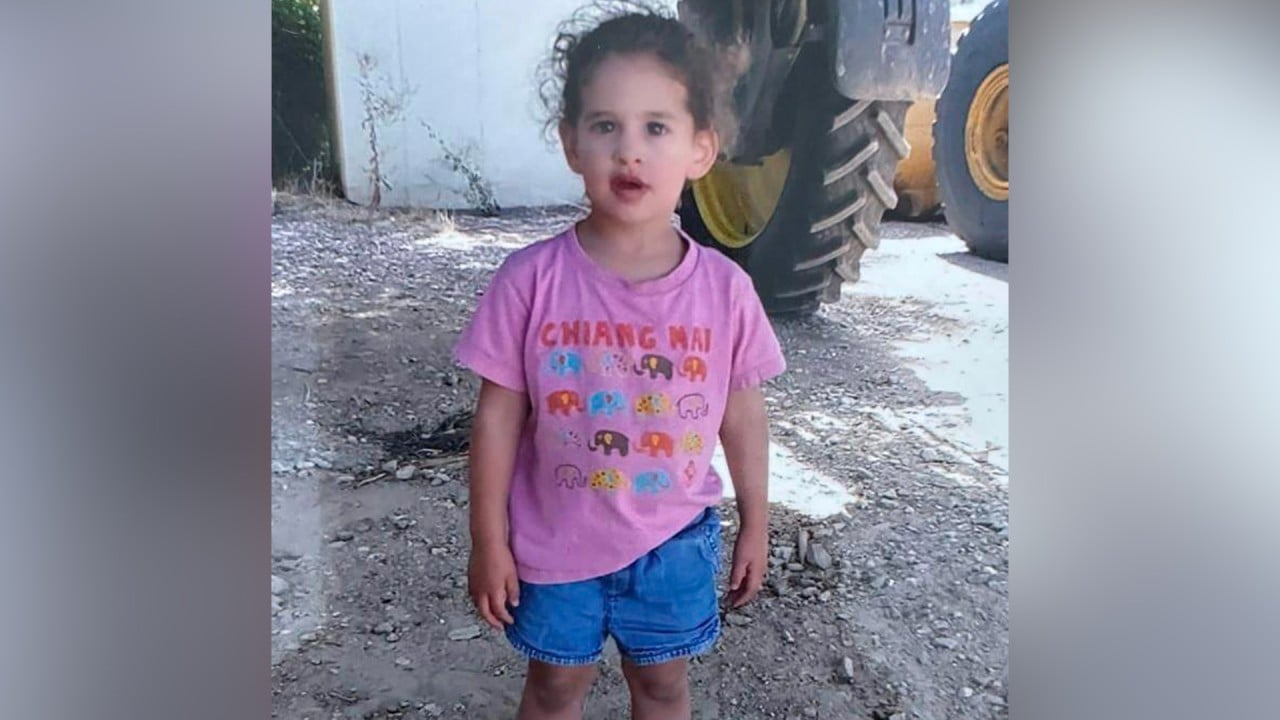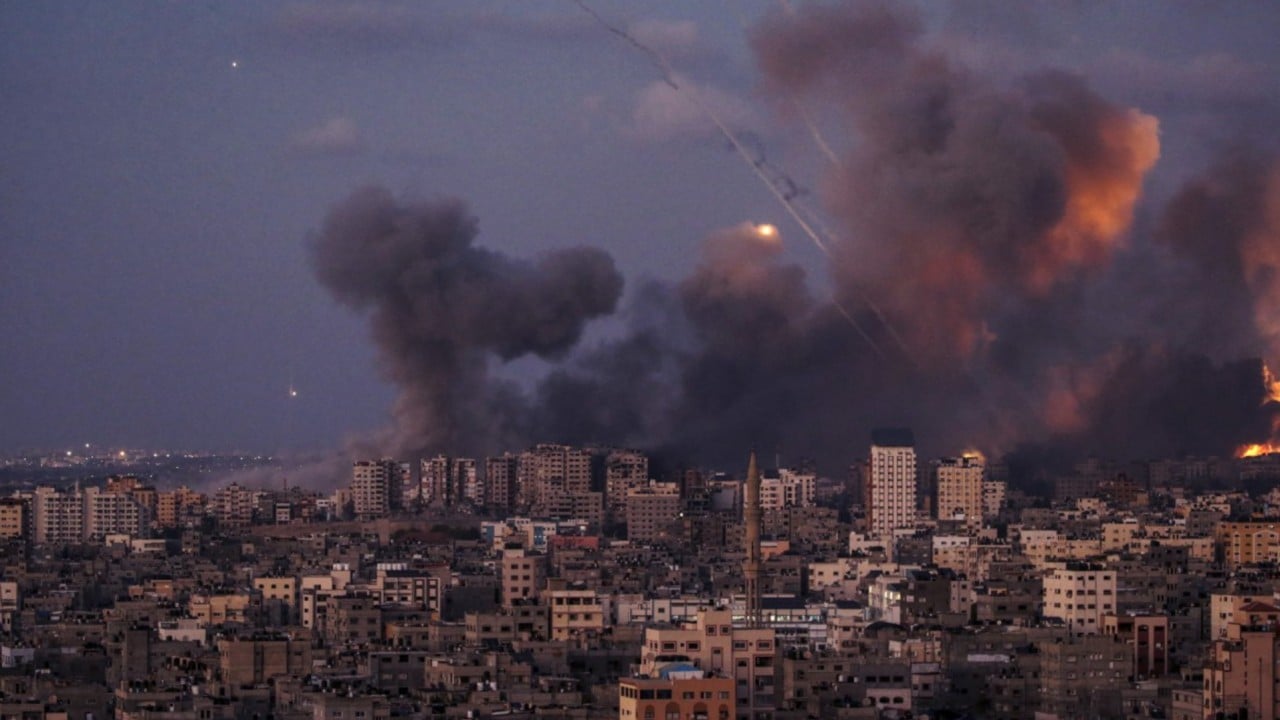
Global South: how Israel-Gaza war and Western reaction are shaping role and ambition of this diverse group of countries
- Middle East conflict is a rare occasion to share a common voice that challenges foreign policy of the United States and other Western powers
- In group without structure or backing organisation, China identifies as a Global South power and shares view of many developing countries on Palestine
The agreement followed reports of humanitarian aid groups, hospitals and refugee camps being targeted and bombarded. Growing humanitarian concerns over Israeli advances in Gaza ramped up concerns in the Global South.
Despite having common ground on the conflict, analysts say the Global South – the loosely defined band of postcolonial and developing countries that spans Latin America, Asia, Africa and Oceania – is not likely to act as one because it is a diverse group without defined leadership or structure.
“Israel’s bombardment of schools, hospitals, refugee camps [and] religious sites has left very little room for moral support in the eyes of a majority of the world, and in fact has outraged people across the world,” said Zoon Ahmed Khan, a foreign-policy analyst and research fellow at Tsinghua University’s Belt and Road Strategy Institute.
She said this had particularly hit Muslims, Orthodox Jews and many Christians who comprised a large portion of the Global South population because Gaza was seen as a land of sacred history in these religions.
They also had strong feelings about a perceived “double standard” by major North American and European countries regarding “what they choose to call war crimes, the swiftness with which the International Criminal Court (ICC) will intervene [and] the degree of empathy shown to Palestinian lives”, Khan said.
The ICC began an investigation into the situation in Ukraine less than a week after the Russian attack but has not looked into Gaza and neither have the US or the EU labelled the attacks on civilian infrastructure in Gaza “war crimes”.
Khan said that while this type of sentiment was not new, it was highlighted by the humanitarian crisis in Gaza: “The same bias that people felt when there was the war in Iraq, when Afghanistan, Syrian civilians became casualties of intervention. And Libyans, you name it.”
World in ‘transition’ from US-led order to multipolar one: Singapore’s George Yeo
G7 versus the Global South response
On October 7, the militant group Hamas launched a sudden assault on southern Israel, killing at least 1,200 people and taking more than 240 hostages. It spurred Israel to strike Gaza with an aim to wipe out Hamas and free the hostages.
The European Union condemned Hamas’ use of hospitals and civilians as human shields, and at the same time urged Israel to show “maximum restraint” to protect civilians.
It has largely limited the call to supporting Israel’s right to defend itself within international law and has called for pauses in fighting.
Some countries – such as Germany, Austria, the Czech Republic and Hungary – have stressed strong support for Israel. Ireland, Belgium and Spain have criticised Israel’s military action while France called for a humanitarian truce that would pave the way for a ceasefire.
Fractured opinions in the United Nations Security Council meant the first resolution on the Israel-Palestine crisis was adopted more than a month after the conflict began.
It called for “urgent and extended humanitarian pauses and corridors” in Gaza for “a sufficient number of days” to allow full, rapid, safe and unhindered access for UN agencies and partners.
Among Global South countries, although they supported a halt for a limited humanitarian purpose, there has been a more specific call for an “immediate ceasefire” – a permanent suspension of hostilities.
At an extraordinary summit in Riyadh this month, the leaders of dozens of Muslim and Arab countries condemned the Israeli “military aggression against the Gaza Strip” and rejected its claim of acting in “self-defence”.
4 reasons Biden’s support for Israel’s Gaza war is hurting America’s reputation
China’s calls for a ceasefire, de-escalation
Despite its rapid economic growth over the past decades, China has identified itself as, and is generally considered to be, a Global South power.
Through its Belt and Road Initiative, a trillion-dollar trade and infrastructure programme, China has bolstered ties and influence with many Global South countries in recent years.
Experts see China as taking an opportunity to gain popularity among the grouping through its rhetoric, but say its influence to change the status quo is limited.
Jesse Marks, a non-resident fellow at the Stimson Centre, a US-based foreign affairs think tank, and a former adviser on Middle East policy in the US Office of the Secretary of Defence, said Beijing’s stance on the Israel-Palestine issue had been “rhetorically consistent over decades” and it was reinforced by its position on the Gaza war.
He said Beijing’s move would not only build its presence in the Arab world, but make it more visible and popular among the Global South.
“Beijing continues to maintain the same position concerning the Middle East peace process and the question of Palestine … This has often reinforced China’s general levels of popularity in the region which, while not necessarily significant, are sufficient to facilitate, not hinder, bilateral cooperation.”
Marks said there was little chance Beijing could mobilise the Global South to completely follow its policy towards the conflict in calling for a ceasefire and rights for Palestine, and there were “severe limits” to any political will to press for change in the status quo in Gaza.
China to play peacekeeper in post-war Gaza, but US holds key to truce: analysts
“The real responsibility for de-escalation remains with the United States and the Biden administration,” he said.
Yan Wei, deputy director at the Institute of Middle Eastern Studies at China’s Northwest University, said China’s unique role as a Global South power promoted de-escalation, but there must be consensus among the southern countries.
“Most developing countries may share the same experience [as Palestine] struggling to be independent, so does China,” Yan said. “Therefore, China’s position [on Palestine] is supported by the countries of the South.
“Meanwhile, China’s stance on the Palestinian-Israeli issue is relatively clear, and therefore appreciated by the countries of the South.”

He said China’s position – which aligned with most Global South countries, and at least with the Arab world – would expand its influence in the grouping in future as the bloc became increasingly important in global politics.
Protests and demands
Appeals were also made by countries closer to the conflict, with Middle Eastern countries such as Egypt and Turkey taking an increasingly assertive tone and demanding an immediate ceasefire in Gaza.
“It is shameful that Western countries, which always voice for human rights and freedoms, remain silent on the massacre in Palestine,” Turkish President Recep Tayyip Erdogan said earlier this month.
Some Latin American states launched diplomatic protests against Israel: Bolivia severed diplomatic relations with Israel while Chile and Colombia withdrew their ambassadors from Tel Aviv.
Philippine nurse on surviving the onslaught in Gaza: ‘I smelled rotten flesh’
But there is no clear division of views on the Israel-Gaza war between the Global South and the Global North, or the West, according to Niu Haibin, director of the Institute for Foreign Policy Studies at the Shanghai Institutes for International Studies.
One of the exceptions within the Global South was India, he said.
The country abstained from the UN General Assembly vote for a humanitarian truce, with Prime Minister Narendra Modi taking a pro-Israel tone in response to Hamas’ attack on Israel.
Can the Global South unify into a bloc?
While Global South was first coined to describe developing countries that shared broad and common economic status, Niu said the title also implied a group of states that were marginalised in the US-dominated global governance system.
Niu noted that after the Cold War ended, the unclear term Global South replaced the “third-world countries” designation, and prevailed in relation to global agendas such as climate change and sustainable development because Global South countries had different priorities to more developed countries.
“Although the concept was not clearly defined and represented by an international organisation, it has become more commonly used … probably because there are not a lot of alternatives,” he said.
“But the views of countries in the South on international issues are also not completely aligned among themselves.”
China and India are a stark example of Global South countries that lack unity of voice because of their different priorities and interests. As well as being greater powers in the loosely defined group, the neighbours – which have frayed ties over border disputes – are also rivals for a leadership role in the group.
“Beyond posturing about the conflict, Arab states, especially Gulf states, and Iran deeply disagreed on the causes and consequences of the war,” said Jean-Loup Samaan, a senior research fellow at the Middle East Institute of the National University of Singapore.
While some blamed Israel and the absence of a Palestinian state as a main cause of the current conflict, countries such as the United Arab Emirates – which normalised ties with Israel in 2020 and condemned Hamas after the attack on 7 October – maintained a more nuanced approach, he said.
Why Israel-Gaza war might complicate China’s Mideast military drone market
The summit in Riyadh ended without punitive economic and political steps because of regional division – countries that had normalised ties with Israel reportedly rejected proposals to sever economic and diplomatic ties with it.
“For sure, the rift with Western countries deepens and confirms some frustrations of Middle Eastern countries with US foreign policy,” Samaan said. “But the war did not really strengthen coordination among Arab countries.”
“Those same [Middle Eastern] countries that are critical of the Biden administration are negotiating new defence agreements with Washington, like Saudi Arabia and United Arab Emirates, or asking the US for air defence support, like Jordan and Oman,” he added.
Difficulties of diversity
It was also difficult for countries of diverse income levels and interests to identify cohesively with the term “Global South”, said Guy Burton, a Brussels-based author and commentator on the Middle East.
Within the Middle East, “it is worth keeping in mind that there are real differences between Arab countries, between those that are high income, and those that are middle and lower income”, Burton said.
But he admitted that a shared identity – “we are different from the West or the North” – had prevailed over the years, especially after the Russian invasion of Ukraine when the war became a central concern for US and European governments, but not for the Global South.
“But whether this is going to be sufficient to be able to lead to a realignment of global politics and reshaping of global politics is another matter entirely,” he said.
EU values-based policy will create a ‘lot of rivals’, Chinese envoy warns
Yun Sun, the co-director of the East Asia Programme at the Stimson Centre said developing countries, with or without using the Global South term, tended to share some common perspectives – more so on Gaza and less on Ukraine.
“They do not have a conscious effort to align [their] positions on Gaza or Ukraine. Instead, they share interests that are determined by their positions and national interests broadly defined as developing countries,” she said.
Despite a generally aligned tone among Arab countries – which represented a good portion of the Global South – there are still important members missing, “such as India”, Sun said.
Additional reporting by Zhao Ziwen




